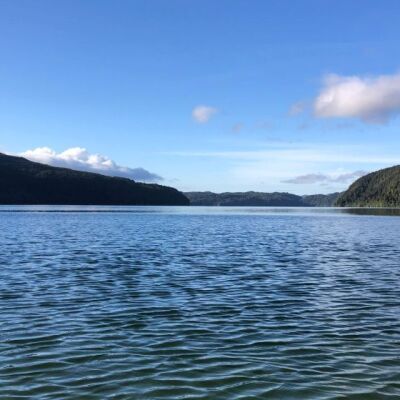
10 November 2023
Biosecurity New Zealand media release issued 10 November
https://www.mpi.govt.nz/news/media-releases/new-biosecurity-protections-for-all-te-arawa-lakes/
New biosecurity protections against the spread of the freshwater gold clam come into effect for Te Arawa lakes at midday on Friday 10 November 2023, including special measures to protect Lake Ōkataina.
"The new protections, applied through a mechanism under the Biosecurity Act called a Controlled Area Notice (CAN), are in place to prevent this clam from making its way out of the Waikato River and from spreading to neighbouring Te Arawa lakes," says deputy director-general Biosecurity New Zealand Stuart Anderson.
"The lakes are at heightened risk of the new-to-New Zealand clam species, being about an hour’s drive from the 99-kilometre section of the Waikato River where the pest was found in May this year.
"Extensive surveillance by Biosecurity New Zealand indicates that our measures to date to stop the spread have been successful."
Mr Anderson says Lake Ōkataina, which was closed under a temporary CAN on 1 October, will re-open to boaties, who must clean their boat and trailer at a designated wash station in Rotorua before entering the water. The clean must take place on the same day, and boaties must head directly to the lake from the wash station. Access to Lake Ōkataina will be controlled and the lake will be open Friday to Sunday 6.30am to 7pm.
Before entering any of the Te Arawa lakes, boaties who have been in the Waikato River in the previous 30 days need to clean their boat at the designated wash station.
Mr Anderson says the new measures are in addition to the clam-specific Check Clean Dry requirements for any boats that have been in the Waikato River.
Freshwater gold clam (Corbicula fluminea)
"The protection for Lake Ōkataina is stronger because it is of cultural significance to Ngāti Tarāwhai. For this reason, the lake was closed to all boating and fishing while these measures were put in place and a suitable wash station was found," says Mr Anderson.
"We thank fishers and boaties for their patience while we put these protections and arrangements in place. We also thank Fish & Game, Te Arawa Lakes Trust, Ngāti Tarāwhai Iwi and local council for their support and assistance with implementing the new CAN requirements."
The designated wash station is at The Wash Place, 338 Te Ngae Road, Rotorua. The Wash Place is a commercial facility and there will be a cost, depending on the length of the cycle chosen.
Payment facilities are available for debit and credit cards, and coins. Boaties are required to complete an online form (accessed via a QR code or website address provided at the wash station) to prove they have completed the required wash-down before they can enter the lake.
"Wash stations are just one tool to help prevent the spread of the clams. It is critical that boaties check, clean, and dry their gear if they have been in the infested part of the Waikato River or lakes and before moving to another waterway," says Mr Anderson.
"These requirements mean people can enjoy the Te Arawa lakes while keeping the freshwater gold clam out. We thank fishers and boaties for their patience during this time."
Signs outlining these requirements under the new CAN will be at Lake Ōkataina and all other lakes impacted by the CAN soon. For information on the lake status, such as closures due to lake levels, people should check with the Rotorua Lakes Council, the Bay of Plenty Regional Council, and the Te Arawa Lakes Trust.
Bay of Plenty Regional Council
Biosecurity New Zealand is working through options for further measures to stop the spread of the freshwater gold clams in the Waikato and Bay of Plenty, including working with partners to make additional wash stations available.
More information about the clam and the biosecurity measures in place can be found at Freshwater gold clam (Corbicula fluminea)
For further information and general enquiries, freephone MPI on 0800 00 83 33 or email info@mpi.govt.nz